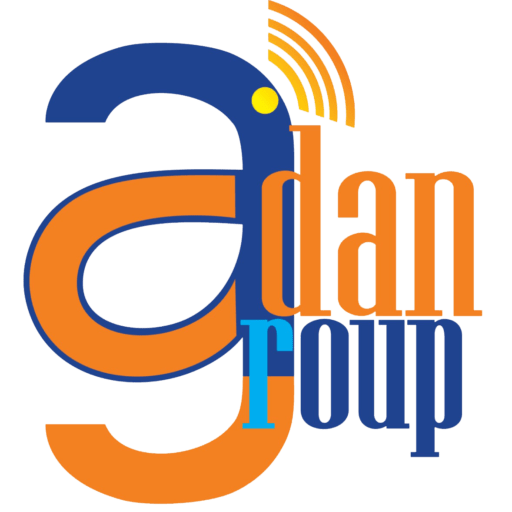- Echoes From the Nation: Current affairs and critical updates shaping nigeria news today, demanding attention and informed response.
- Political Developments: A Shifting Landscape
- Economic Reforms and Diversification Efforts
- Focus on Agricultural Development
- Security Challenges and Regional Conflicts
- Social and Humanitarian Issues
- Technological Advancements and Digital Transformation
Echoes From the Nation: Current affairs and critical updates shaping nigeria news today, demanding attention and informed response.
Nigeria is a nation constantly in flux, a vibrant tapestry of cultures, economies, and political landscapes. Understanding nigeria news today requires navigating a complex interplay of factors. From security challenges in the north to economic reforms aimed at diversifying the oil-dependent economy, the country faces multifaceted issues demanding close attention. A multitude of influences shape the daily lives of its citizens and the trajectory of its development.
The media landscape itself is evolving, with traditional outlets battling for relevance alongside a burgeoning digital space. Social media platforms have become crucial sources of information, though they are also breeding grounds for misinformation, necessitating critical consumption and verification. Staying informed about current events necessitates a discerning eye and a reliance on credible sources.
This detailed overview aims to dissect key happenings within Nigeria, providing a comprehensive update on the political, economic, and social facets shaping the nation. It’s about more than just headlines; it’s a deeper dive into the underlying realities and potential future trajectories.
Political Developments: A Shifting Landscape
The political sphere in Nigeria is characterized by a dynamic interplay of power, regionalism, and evolving party alliances. Recent shifts in the legislative assembly, coupled with ongoing debates surrounding electoral reform, are pivotal to the nation’s democratic process. Discussions concerning constitutional amendments and the restructuring of governmental institutions remain at the forefront of political discourse.
Moreover, the upcoming elections and potential shifts in leadership are closely watched not just domestically, but internationally. The rise of younger political figures seeking to challenge established norms adds another layer of complexity. Maintaining stability and addressing issues of good governance are crucial as the country prepares for the future.
| Electoral Reform | Ongoing debates, proposed amendments. | Improved transparency, increased voter participation. |
| Constitutional Amendments | Discussions regarding restructuring and power-sharing. | Potential for greater regional autonomy, enhanced governance. |
| Security Situation (North-East) | Continued military operations, humanitarian crisis. | Regional instability, displacement of populations. |
Economic Reforms and Diversification Efforts
Nigeria’s economy remains heavily reliant on oil revenue, exposing it to vulnerabilities in the global market. In response, the government has initiated several reforms aimed at diversifying the economy, boosting non-oil exports, and attracting foreign investment. These include incentives for agricultural development, investment in infrastructure, and efforts to improve the ease of doing business.
However, challenges persist, including inflation, unemployment, and infrastructural deficits. The recent fluctuations in global oil prices have further underscored the urgent need for diversification. Successfully navigating these challenges will be critical to securing long-term economic stability and prosperity.
Focus on Agricultural Development
Recognizing the significant potential of the agricultural sector, the Nigerian government has launched several initiatives to support farmers, improve irrigation systems, and enhance food security. These programs seek to reduce the country’s reliance on food imports, create employment opportunities in rural areas, and boost agricultural exports. The emphasis on value addition and agro-processing is aimed at increasing the profitability of agricultural enterprises.
However, obstacles related to land tenure, access to finance, and inadequate infrastructure continue to impede progress. Addressing these challenges through targeted policies and investments is essential for unlocking the full potential of the agricultural sector and realizing its contribution to economic growth. The current prioritization of agricultural projects signals a recognition of the sector’s fundamental role in national development.
Security Challenges and Regional Conflicts
Nigeria faces multifaceted security challenges, ranging from the ongoing conflict in the North-East involving Boko Haram and ISWAP, to banditry in the North-West and communal clashes in several parts of the country. These conflicts have resulted in significant loss of life, displacement of populations, and economic disruption. Addressing these security concerns requires a comprehensive approach that combines military action, counter-terrorism measures, and socio-economic development initiatives.
Furthermore, the proliferation of small arms and light weapons, coupled with porous borders, exacerbates the security challenges. Regional cooperation, intelligence sharing, and border security enhancements are crucial for curbing the flow of illicit arms and dismantling criminal networks. The government’s commitment to strengthening security forces and improving community policing is a vital step toward restoring peace and stability.
- Collaborative efforts with neighboring countries.
- Investment in modern security technology.
- Community-based conflict resolution mechanisms.
- Addressing root causes of conflict, such as poverty and inequality.
Social and Humanitarian Issues
Beyond political and economic spheres, Nigeria grapples with pressing social and humanitarian issues. These include poverty, unemployment, access to quality education and healthcare, and gender inequality. Addressing these challenges demands investment in social infrastructure, skills development programs, and policies that promote inclusivity and empowerment. The sheer scale of these issues requires collaborative efforts between the government, civil society organizations, and international partners.
Moreover, the impact of climate change, including desertification and flooding, poses a significant threat to vulnerable communities. Building resilience to climate shocks and investing in sustainable development practices are essential for safeguarding the well-being of future generations. Addressing these issues necessitates a holistic approach that integrates social, economic, and environmental considerations.
Technological Advancements and Digital Transformation
Nigeria is experiencing a rapid digital transformation, driven by increasing internet penetration, mobile technology adoption, and the growth of the tech startup ecosystem. This presents enormous opportunities for economic growth, innovation, and social development. The government is actively promoting digital literacy, investing in broadband infrastructure, and creating a regulatory environment conducive to innovation.
However, challenges remain, including the digital divide, cybersecurity threats, and the need for a skilled workforce. Bridging the digital divide and ensuring equitable access to digital technologies are crucial for fostering inclusive growth. Strengthening cybersecurity measures and promoting responsible digital citizenship are also essential for harnessing the full potential of the digital revolution.
- Increased investment in broadband infrastructure.
- Development of digital skills training programs.
- Strengthening of cybersecurity frameworks.
- Promotion of innovation and entrepreneurship within the tech sector.
| Finance | Fintech adoption, mobile banking. | Increased financial inclusion, reduced transaction costs. |
| Healthcare | Telemedicine, electronic health records. | Improved access to healthcare, enhanced patient care. |
| Education | Online learning platforms, digital resources. | Expanded access to education, personalized learning experiences. |
The ongoing narrative in Nigeria is one of resilience, innovation, and a relentless pursuit of a more equitable and prosperous future. Navigating the complexities outlined above will require strong leadership, effective governance, and a collective commitment to building a nation where every citizen has the opportunity to thrive.




